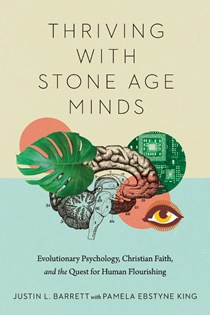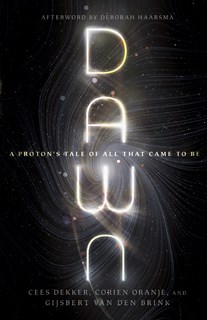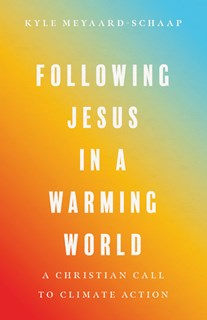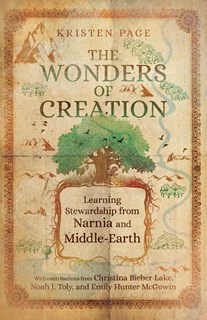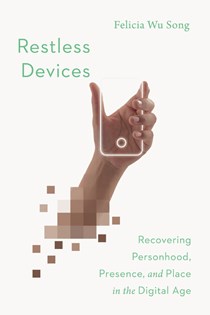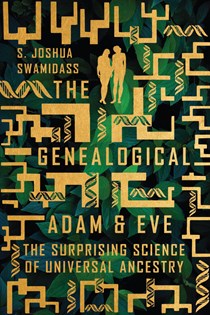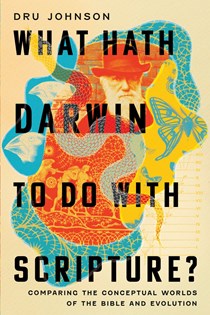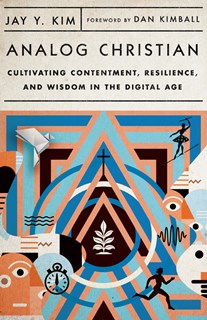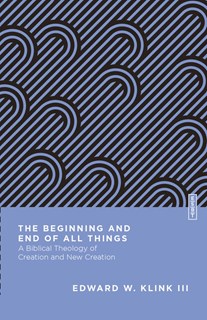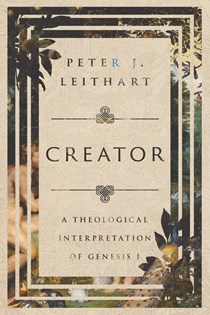Science
-
Thriving with Stone Age Minds
Evolutionary Psychology, Christian Faith, and the Quest for Human Flourishing
BioLogos Books on Science and Christianity
by Justin L. Barrett
With Pamela Ebstyne KingWhat does God's creation of humanity through the process of evolution mean for human flourishing? The emerging field of evolutionary psychology remains controversial, perhaps especially among Christians. Yet according to Justin Barrett and Pamela Ebstyne King it can be a powerful tool for understanding human nature and our distinctively human purpose.
Thriving with Stone ...
-
Dawn
A Proton's Tale of All That Came to Be
BioLogos Books on Science and Christianity
by Cees Dekker, Corien Oranje, and Gijsbert van den Brink
Translated by Harry Cook
Afterword by Deborah HaarsmaThis is an adventure that began almost fourteen billion years ago, one that so often threatened to fail. It's truly a miracle I'm still here. Despite everything, I wouldn't have wanted to miss one second of it. And the best is yet to come.
With the help of an extraordinary narrator, you're invited to discover the wonder and drama of the history of the cosmos. In this ...
-
Following Jesus in a Warming World
A Christian Call to Climate Action
by Kyle Meyaard-Schaap
Have you ever looked at the effects of climate change and the apathy of so many around you and wondered, "What are we missing here?"
Climate activist Kyle Meyaard-Schaap understands this feeling from personal experience. But in his years of speaking to and equipping Christians to work for climate action, he's seen the trend begin to shift. More and more young Christians are ...
-
The Wonders of Creation
Learning Stewardship from Narnia and Middle-Earth
Hansen Lectureship Series
by Kristen Page
Contributions by Christina Bieber Lake, Noah J. Toly, and Emily Hunter McGowinWhen an author of fiction employs the imagination and sets characters in a new location, they are in a sense creating a world. Might such fictional worlds give us a deeper appreciation for our own?
Many readers have found themselves, like the Pevensie children, transported by C. S. Lewis into Narnia, and they have traveled from Lantern Waste to Cair Paravel and the edge of ...
-
Restless Devices
Recovering Personhood, Presence, and Place in the Digital Age
by Felicia Wu Song
We're being formed by our devices. Today's digital technologies are designed to captivate our attention and encroach on our boundaries, shaping how we relate to time and space, to ourselves and others, even to God. Our natural longing for relationship makes us vulnerable to the "industrializing" effects of social media. While we enjoy the benefits of digital tech, many of us feel ...
-
The Genealogical Adam and Eve
The Surprising Science of Universal Ancestry
by S. Joshua Swamidass
Evolutionary science teaches that humans arose as a population, sharing common ancestors with other animals. Most readers of the book of Genesis in the past understood all humans descended from Adam and Eve, a couple specially created by God. These two teachings seem contradictory, but is that necessarily so? In the fractured conversation of human origins, can new insight guide us to solid ground ...
-
What Hath Darwin to Do with Scripture?
Comparing Conceptual Worlds of the Bible and Evolution
by Dru Johnson
Believe it or not, the book of Genesis might have been the most Darwinian text in the ancient world. And throughout the opening books of Scripture, we find ideas that would also become prominent insights of the biologist Charles Darwin interlaced with the Bible's one-of-a-kind origin story. Key plot markers come to the surface again and again, driving the history of Israel and the ...
-
Analog Christian
Cultivating Contentment, Resilience, and Wisdom in the Digital Age
by Jay Y. Kim
Foreword by Dan KimballThe Gospel Coaltion Award of Distinction—Christian Living
Outreach Resource of the Year
The digital age is in the business of commodifying our attention. The technologies of our day are determined to keep us scrolling and swiping at all costs, plugged into a feedback loop of impatience, comparison, outrage, and contempt. Blind to the ...
-
The Beginning and End of All Things
A Biblical Theology of Creation and New Creation
Essential Studies in Biblical Theology
by Edward W. Klink III
Series edited by Benjamin L. GladdMany Christians think of the doctrine of creation primarily as relating to the world's origins. In The Beginning and End of All Things, Edward W. Klink III presents a more holistic understanding of creation—a story that is unfolded throughout all of Scripture and is at the core of the gospel itself.
From beginning to end, the theme of creation and new creation not ...
-
Creator
A Theological Interpretation of Genesis 1
by Peter J. Leithart
The Christian claim that the triune God is the creator of the universe is both exegetically grounded and theologically rich.
Yet discussions about God's work of creation are often overwhelmed by questions such as the age of the earth and the relationship between divine creation and evolution. Without completely ignoring such issues, Peter Leithart offers a decidedly theological ...


